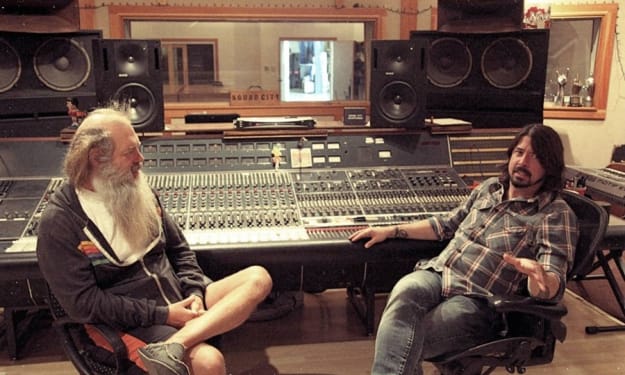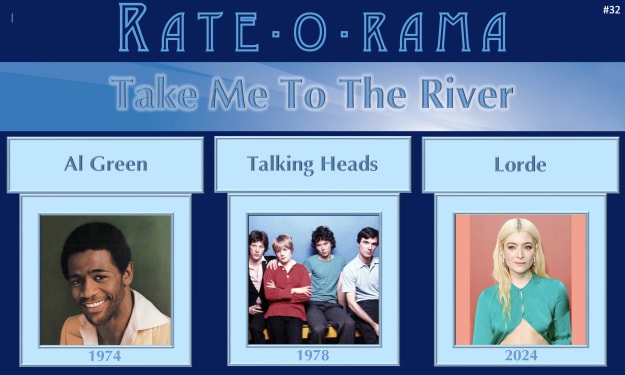
I have been a musician for 18 years of my life. From a classical pianist, to a jazz bassist, to a country guitarist, to a metal vocalist, to a DJ, I have worked in it all. When people ask me what type of music I listen to, I'm laughed at when I answer, "all of it," but at the end of the day, all musicians truly appreciate all types of music.
I will admit, I was not the best screamo vocalist to attempt the craft (mainly because I do not know how to scream), but the elements that go into a "screamo" song interested me nonetheless. When looking at the core of it, screamo pulls from many other genres. The vocal history of metal as a whole pulls from opera. The guitar pulls from old school blues. The bass pulls from jazz. The drums pull from all of those. Screamo is no more than operatic blues with heavy distortion and sped up to be twice as fast. When looking at the lyrics, screamo vocalists aren't singing about anything different than other artists from pat generations. All vocalists are singing about what is influencing them emotionally. At the end of the day, screamo is musical classic, but this article isn't about screamo as a genre of music. It's about creating the perfect song.
When it comes down to it, there are three schools of thought to take when writing the perfect song. The three elements are sound, meaning, and science. When writing the perfect song, it's important to look at the genres of music that are popular, the themes that the vocalists are singing about, and the structure of the songs that are popular. What is the perfect song though? Is it catchy? A love song? Fast tempo?
Saying a song is "the perfect song" is arbitrary. Rolling Stones Magazine claims 'Like a Rolling Stone' by Bob Dylan to be the greatest song ever written. Billboard says 'The Twist' by Chubby Checker as the biggest hit of all time. The most streamed song on Spotify is 'The Shape of You' by Ed Sheeran. So what does any of that mean? There are charts and records for just about every genre in every decade you can name, and there is only one common denominator between all of the #1's. They all appeal to the masses.
This brings us back to the three principles of the perfect song listed before: sound, meaning, and science. The sound seems simple, but is much more complicated than expected. Sounds are always changing, and if they weren't we'd all be listening to 1930's folk music on the radio. The invention of the electric guitar revolutionized music. Jazz changed our idea of what can be done with music. 80's hair metal changed how we thought people could sing. EDM changed what we thought instruments were. There is no perfect sound. The only perfect sound is either doing what is currently successful, or break away so far that you become a pioneer in a new genre. In our current day and age, 2021, there are only 2 ways to be successful: recall old styles or match the popular ones. There has not been a ground breaking new genre of music since Grunge in the late 80's and earl 90's. Thirty years we've been listening to the same types of music, yet the top 25 most streamed songs are all from the last decade. If nothing is new, how do we have new top songs every year? If nothing has changed should Nirvana and Madonna still be at the top?
The difference in music being popular now is partially due to what people are singing about. The meanings of songs are what shape our top charts. If someone in the 50's heard a song about being ghosted, they'd probably call a priest to perform an exorcism. It could be written in a style that is familiar to them, but it won't resonate the same as it does with people from our age. The Weeknd writes about a lot of things that wouldn't make sense in the 80's (like cellphones), but his music fits in with what else was popular at the time. So is the perfect song based around what people are feeling or experiencing at the time? Then why are some of the most popular songs in our modern genres about small town girls and farms, while others are about drugs and clubs? We have a song about depression followed by a song about wet genitalia charting every day. Is it maybe that we are experiencing more emotions today than people were 50 years ago, or are we just more in tune with our emotions?
If you're someone who relies on science and data to decide how to think, maybe the science behind music will help you decide what the perfect song is. If you look at popular songs, there are a few simple elements that come into play: tempo, chords, structure, and length. The science of music deals with how we are affected by music and the mathematics behind making music.
The tempo of a song is easy to understand. The most popular tempo in music is 120-140 beats per minute. While it seams a little fast, it makes sense why it is in that range. The average resting heart beat is 60-100bpm, and unless you're drinking a pot of coffee an hour, it's generally on the lower end of that scale. The most popular tempo starts at double the average heart rate, and not by coincidence. We're attracted to faster songs because it makes us want to move, or rather dance. If the tempo aligns with our resting heart rate we're more inclined to want to listen to it. So does the tempo of a song make it perfect?
Next, we have chords. I'm sure you've seen an SNL skit or other comedy skit about how all popular songs follow the same 4 chord progression. Why not follow the same progression though? If you can change up the key, the rhythm of the notes, or the tempo, why not use the same chord progression? If it works for Katy Perry and it works for Green Day, why not use the same progression for your bluegrass funk jam band? We've grown accustomed to hearing the same few progressions over and over again that we've accepted it as being the best. So does a certain chord progression make it perfect?
The structure of the song has to make or break its popularity, right? Wrong. Songs are basically broken up into a simple math equation:
Intro + (Verse + Chorus) x N + Bridge + (N x Chorus) + Outro
I was never good at algebra, but bare with me. It boils down to this. You have an intro, a verse followed by a chorus as many times as needed, a bridge another chorus, then an outro. Intros can be choruses or verses or instrumentals or guitar solos. The bridge could be an instrumental, a different compilation all together, or a ripping guitar solo, it doesn't matter. The outro could be another chorus, a few words, a solo, an instrumental, or just a single note. There's an outline that every song follows, but every song chooses what each part is going to be. So is there a perfect structure to a song?
The length of a song is pretty cut and dry. There is no perfect length to a song. Except there is. The average length of a song is 3 minutes and 30 seconds. The average length of a verse in a song is 20-24 seconds, and same with the chorus. The average guitar solo lasts 8-12 bars at whatever tempo. There are tried and true lengths of songs and parts, but why haven't we had another Freebird or Stairway to Heaven? Songs that are twice as long as the average length of a song, but are considered two of the greatest songs of all time. So what length does a song have to be?
If you read this and thought to yourself, "I could write a hit song now," you've probably realized that it takes both a combination of all three principles to write a hit song. If you're like me and really have no idea what you just wrote on a public blog website, cheers. Cheers because you can take all the information in the world about how to write the perfect song and still top out at 27 streams on SoundCloud. Musicians who don't understand the adaptability of the industry are destined to fail. Machine Gun Kelly was obliterated by Eminem in a diss-track, so what did he do? Switched to Pop-Punk and brought back hall of fame drummer Travis Barker. Multiple #1 hits on his now platinum record. Musicians have to adapt to survive.
Does your music make you happy? Do you enjoy the type of music you're playing? Is what you have going for you in music enough for you? If you answered "yes" to any of those questions, congrats. You've written the perfect song.
Keep Rockin'
About the Creator
Coleman
"Why so serious?" - The Joker
Firm believer that people take everything too seriously, and we'd all be a lot better off if we stopped and laughed at ourselves once in a while.
If you're offended by my work, I won't apologize.






Comments
There are no comments for this story
Be the first to respond and start the conversation.